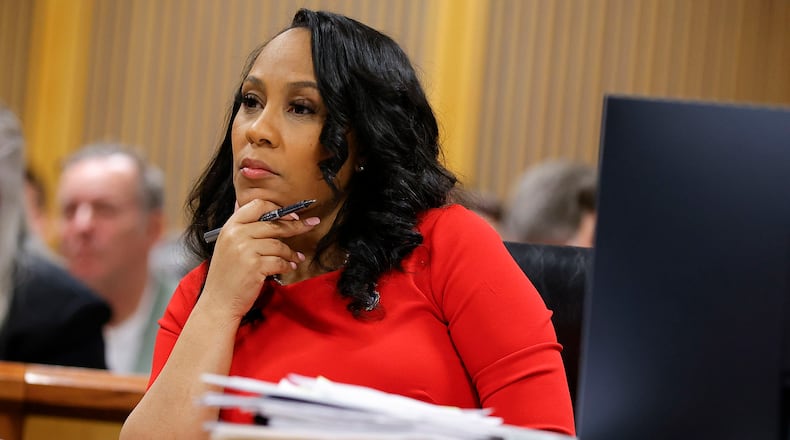For many months, the Fulton County election interference case has been delayed by allegations that never made much sense. Now the case is being delayed again as a Georgia court agreed to hear an appeal of a lower-court decision in the case against former president Donald Trump and more than a dozen co-defendants.
If the defendants in the case had their way, Fulton County District Attorney Fani T. Willis would have been disqualified from prosecuting the case. Thankfully, that did not go as the defendants in the election interference case planned.
The defendants alleged that Willis had a conflict of interest because she was involved in a relationship with the special prosecutor. The defendants claimed that Willis somehow benefited financially from this relationship.
A Georgia Superior Court judge, Scott McAfee, correctly ruled against these claims. The district attorney did not violate any laws, benefit financially from the relationship or harm the case in any way.
I was in the courtroom as the salacious allegations were heard. From my vantage point, I saw a great deal of irony that somebody ought to say something about.
handout
handout
What bothered me the most was the criticism the district attorney Willis received from the defendants’ attorneys for her visit to Big Bethel AME Church, one of more than 500 churches under my supervision. I was in attendance for Willis’s speech. Specifically, the defendants claimed that Willis’s remarks were “racist.” That is utterly false. I shook my head in the courtroom when this claim was made and immediately saw the irony when the chief defendant, Trump, has claimed that three prosecutors who have charged him are racist: Manhattan District Attorney Alvin Bragg, New York Attorney General Letitia James and Willis.
Watching the action from the courtroom, I was offended by how the defendant’s lawyers treated Willis’s private life. She conducted a thorough investigation, followed the leads, obtained the evidence and assembled a grand jury that decided to recommend indictments. The grand jury recommended 38 people be indicted, yet she chose to indict only 18. Because of this work, the defendants’ lawyers dragged her reputation through the mud to punish her and make her pay for doing the right thing. They attacked the private life of a good, fair, honest person. They failed to make their case and lost.
Finally, I also saw a clearly partisan effort against our justice system. After Willis announced the indictments, the Georgia General Assembly, by party-line votes and with the governor’s signature, passed legislation allowing it to scrutinize and handicap prosecutors.
Yet again, another irony. Though the state legislature can now question Willis’s actions, no one has investigated or questioned the district attorney of Coffee County. In that strongly Republican county, blatant and recorded election irregularities occurred involving people associated with the Trump campaign. Why hasn’t a state Senate committee, the Georgia attorney general, the State Election Board or anybody investigated these apparent irregularities? Why hasn’t the lieutenant governor of Georgia been held accountable for his actions as a “fake elector” in the 2020 presidential election? This matter was referred to the state prosecuting attorney more than 18 months ago.
Willis, a person of deep faith who is fiercely committed to justice, has been a pawn in an effort to distract and delay the indictment and trial of Trump and co-defendants. Willis should be commended for her courage, determination and persistence to seek justice. For staying focused on what matters and doing her job as best she can.
This has gone on too long. I hope the Georgia appeals court decides quickly so that the case can continue in Fulton County and voters can have the evidence they need before the November election.
Bishop Reginald T. Jackson is bishop of the 6th District AME Church (Georgia).
Listen to a version of this article recorded by the author:
About the Author






